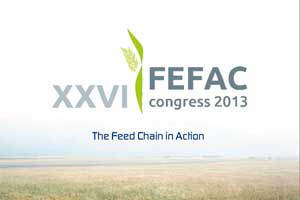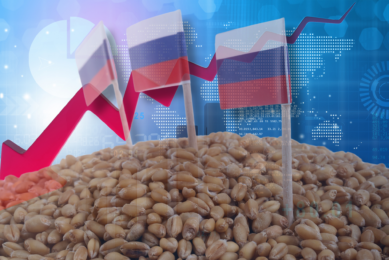Report: EU’s feed chain – stats & sustainability

Fefac (the European Feed Manufacturers’ Federation) have presented ‘The Feed Chain in Action’ report, which consists of the 2012’s statistics and most relevant topics concerning the European compound feed and premixture industry and its contribution towards a sustainable future.
Fefac’s immediate past president, Patrick Vanden Avenne, outlines in the foreword how the way forward for a sustainable industry should be seen and how current challenges in Europe can be overcome. In the first place, feed safety is not negotiable and should be guaranteed and all stages of the feed and food chain. For the feed industry to become more competitive and to be able to tackle volatility on the market, feed operators should be able to utilise appropriate financial risk management instruments, such as futures and options for hedging. With the ever growing demand and limited resources it is evident more output will have to be produced with less input. “Fortunately, the feed industry has a history of proven expertise in resource efficiency and the industry’s added value lies in the nutritional know-how, which enables a cost effective diet for animals”, says Vanden Avenne.
Incoming president Ruud Tijssens identifies innovation as the crucial factor in order to further improve the industry’s resource efficiency. “I am convinced that research and development will remain a key driver for our European feed industry and livestock production in the future, in searching for more resource-efficient ways to produce feed and livestock products while supporting animal health and welfare issues as well as socially responsible livestock farming”, Tijssens stated in his closing speech at FEFAC’s Congress.
“The Feed Chain in Action” touches upon numerous subjects such as the use of former foodstuffs in animal feed to reduce food waste, FEFAC’s contribution to the Round Table of Responsible Soy, the maintenance of feed safety thanks to the development of the EMFC and the positive role animal feeding can play in fighting antimicrobial resistance.











